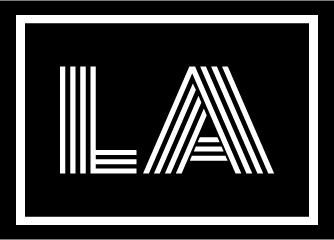A power converter is an essential component in electronics that transforms electrical energy from one form to another. Essentially, it takes input power, which could be in the form of voltage, current, or frequency, and converts it into a different output form suitable for powering electronic devices. Think of it as a translator between different languages of electricity.
Types of Power Converters
There are several types of power converters, each designed for specific purposes. Here are some common ones you might encounter:
- AC to DC Converters: These converters, also known as rectifiers, convert alternating current (AC) into direct current (DC). They are widely used in devices that require DC power, such as computers, televisions, and mobile phones.
- DC to DC Converters: As the name suggests, DC/DC converters convert one DC voltage level to another. They are often used in battery-powered devices, voltage regulation, and applications requiring a stable DC voltage.
- DC to AC Converters (Inverters): Inverters do the opposite of rectifiers – they convert DC power into AC power. This is essential for devices that require AC power, such as home appliances, solar inverters, and electric vehicles.
- AC to AC Converters: These converters change the voltage or frequency of AC power without converting it to DC first. They are commonly used in voltage regulation, frequency conversion, and motor control applications.
When to Use Each Power Converter
Choosing the right power converter depends on your specific application and requirements. Here’s a short guide:
- AC/DC converters: Think of your smartphone charger or laptop power adapter. These devices convert the AC power from your wall outlet into the DC power needed to charge your electronic devices.
- DC/DC converters: Hybrid cars use DC/DC converters to manage the power flow between the battery pack and the vehicle’s electrical system, ensuring efficient energy utilization and battery longevity.
- DC/AC converters (inverters): When you install solar panels on your roof, the DC electricity they generate needs to be converted into AC electricity to power your home appliances. This is where inverters come into play, seamlessly transforming the DC power from the solar panels into usable AC power.
- AC/AC converters: Variable frequency drives (VFDs) in industrial settings use AC/AC converters to control the speed of electric motors by adjusting both the voltage and frequency of the AC power supplied to them. This allows for precise control over machinery and processes, optimizing energy usage and performance.
Advantages and Disadvantages
Each type of power converter has its own set of advantages and disadvantages:
- AC/DC Converters:
- Advantages: AC/DC converters are known for their efficiency and widespread availability, making them the go-to choice for powering a vast array of electronic devices. They are suitable for most electronic gadgets, providing a reliable source of power.
- Disadvantages: AC/DC converters can be bulky, particularly in high-power applications, which can limit their practicality in certain settings. They may also introduce electrical noise into the system, affecting the performance of sensitive electronic equipment.
- DC/DC Converters:
- Advantages: DC/DC converters offer impressive efficiency and precise voltage regulation, ensuring stable power delivery to electronic components. Their compact size makes them ideal for integration into space-constrained devices and systems.
- Disadvantages: On the flip side, the design of DC/DC converters can be more complex compared to other types, requiring specialized knowledge for development and maintenance. Their higher cost, especially for specialized configurations, may create a barrier to widespread adoption in certain applications.
- DC/AC Converters (Inverters):
- Advantages: Inverters are indispensable for powering AC devices from DC sources, enabling the seamless integration of renewable energy sources like solar panels into residential and commercial power systems. Their versatility allows for a wide range of applications, from powering household appliances to grid connections.
- Disadvantages: Inverters incur efficiency losses during the conversion process, which can impact overall system performance and energy utilization. High-power inverters can also be expensive to purchase and install, particularly for large-scale applications like solar farms or industrial facilities.
- AC/AC Converters:
- Advantages: AC/AC converters offer the flexibility of adjusting both voltage and frequency of AC power, making them invaluable for applications such as motor control and voltage regulation. Their ability to tailor power output to specific equipment requirements enhances efficiency and performance.
- Disadvantages: Nevertheless, AC/AC converters typically feature a more complex design compared to direct conversion methods, requiring sophisticated control algorithms and circuitry. Additionally, their efficiency may be lower compared to simpler conversion processes, resulting in energy losses during operation.
Power converters play a crucial role in facilitating the efficient conversion of electrical energy across diverse applications in the realm of electronics. Familiarizing yourself with the various types of power converters and their optimal usage can greatly enhance your ability to design and optimize electronic systems tailored to specific needs. Whether you’re seeking to power a solar panel array or streamline production line machinery, Quotebeam is ready to help you with a full range of power converter solutions to meet your needs.

